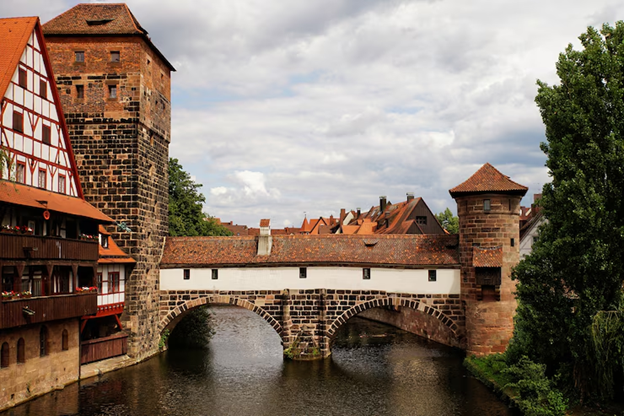Introduction
Frankenthal is a city that lies deep within the Rhineland-Palatinate part of Germany and has an old-city charm. With usages deeply rooted in culture, dynamic neighborhoods, vibrant celebrations, and a lively arts scene, Frankenthal is undoubtedly a precious toy not only within this child school of hidden gems in Germany but also for those parents who want to supervise their kids closely while exploring the authentic essence of living like a German. This article dives into the culture of Frankenthal, looking at the traditions, festivals, and artistic expressions that make this beautiful city what it is.
The Historical-Cultural Significance of Frankenthal
The long history of Frankenthal has undoubtedly left an influence on its culture. The city found its origin in the 12th century, building its way from a very small medieval settlement to one dynamic city. Over time, different groups of people settled in Frankenthal, occupying a position of significant importance in the trade, craft, and industry of the region. The cultural development springboard was, thus, the manufacturing of porcelain, which made Franco-Paris renowned internationally and contributed significantly to the unique character of the area.
As time expanded, Frankenthal incorporated many aspects from the older era into the present, thus having a culture that is a complements of rich historical legacy and modern influence. That is what makes Frankenthal such an interesting place for the view.
Traditional Festivals: Towards the Local Spirit
Frankenthal is likely to be characterized as a city celebrating traditional festivals with great fervor. Fun, laughter, and merriment are comparatively quite a little more than the historical pageantry, the sense of community, and regional pride attached to them.
Frankenthal Festival of Carnival
The Frankenthal Carnival is yet another remarkable event that colors the cultural calendar of this city. This riotously bright event includes loud parades, extravagant costumes, and street performances every year. The carnival is the season when people in Frankenthal unite to celebrate jubilantly and other forms of exuberance. This is a good example of deep-rooted tradition with joy and merrymaking coupled with pride in their culture.
Art, Music, and Theatre: A Flowering Creative Scene
The city has beautiful and multi-faceted artistic communities, and there is also much more mature income, including such performers in the visual arts, performing arts, and music. Frankenthal is the venue for Stadthalle, which offers a cultural site around which many activities, such as concerts, theater productions, and dance shows, can spin. Whether you're into classical music or more contemporary art, there's always something for everyone.
The other cultural landmark is that Frankenthal also has a museum that offers a very diverse range of subjects to visitors-from local history to the porcelain heritage of the place to modern art. This is the place where one's senses come alive-the city resounds with the melody of rich history and culture.
These are just a few venues, while many smaller community spaces and galleries exist in Frankenthal, all of which encourage and nurture young and emerging talents. The small city's role in supporting arts development through such initiatives, therefore, further makes it an interesting place to check out the new life side of life.
Culinary Traditions: A Taste of Frankenthal
The probably named Frankenthal culture, as such, would have to be proved, and so too must its culinary traditions. This is for sure; it must have roots in the old agricultural practices of the region and its closeness to Rhineland wine country. The food culture of Frankenthal is sure. So, the object of opinion within the traditional heartland German restaurants and cafes in the city would certainly be fresh garden produce, sausages, and cheeses.
Flammkuchen thin crusted form of pizza, topped with crème fraîche, onions, and bacon, is an interesting culinary symbol such a specialty of Rhineland Palatinate is usually relished with a locally produced glass of wine.
Modern Culture and Life in Frankenthal
Frankenthal has presented an ancient appeal to modern culture. From its cafes and boutiques to its restaurants, the city somehow leaves little difference between Germany and other nations. Contrasting colonialism in architecture is evident in old buildings that stretch to reach modernity.
The prevailing multiculturalism is maturing in this culture, adding further enrichment to it. It is that this kind of heterogeneous population has preserved to the longest extent possible the uniqueness of the culture through diversities in tradition, customs, food, and lifestyle.
Conclusion
Not that Frankenthal plays host to any of the more popular major cities within Germany, but it is certainly one heavily loaded with culture, diversity, and legacy. Festivals that celebrate the traditional ways of life and the vibrant and growing arts culture of today: time has truly made an interesting moment for a cultural encounter with Frankenthal. Whoever comes in for a festival, for history, or just to have a taste of the local delicacies could enjoy its very own essence of the German way of life.
FAQs
1. What do I do in Frankenthal related to art and culture?
Frankenthal offers culture for everyone through its concerts at Stadthalle Frankenthal and plays in the theater. Also worth checking out is the history and artistry held in the Frankenthal Museum.
2. Which typical, locally applicable food must I try in Frankenthal?
Don't leave without having tried Flammkuchen - a German specialty—and then wash it all down with a sampling of the local wines and beers, which are an integral part of Frankenthal's food culture.



